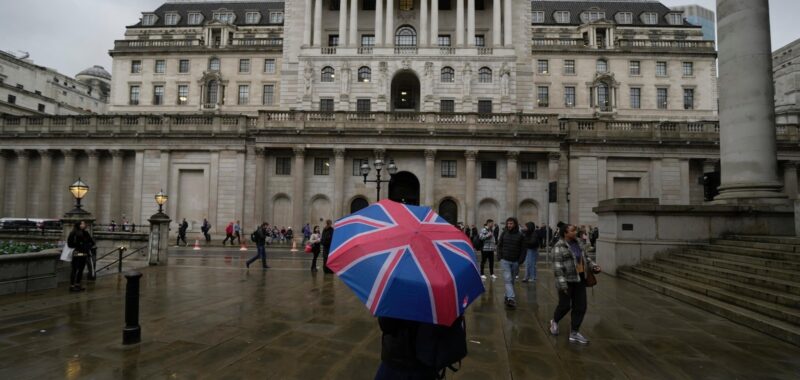LONDON — Inflation in the U.K. has fallen to its lowest level for more than three years, official figures showed Wednesday, a drop that has cemented market expectations that the Bank of England will lower interest rates at its next policy meeting.
The Office for National Statistics said consumer prices rose 1.7% in September, down from 2.2% the previous month, largely as a result of lower air fares and petrol prices.
The decline was bigger than the 1.9% analysts had anticipated, and means that inflation is below the central bank’s target rate of 2% for the first time since 2021.
As a result, the bank’s rate-setting panel is expected to further reduce its main interest rate when it meets again in early November to 4.75% from 5%. It previously cut borrowing costs in August, the first reduction since the early days of the coronavirus pandemic in early 2020.
“A quarter-point rate cut in November is now effectively a done deal, and this report certainly makes the path to a consecutive cut in December much clearer,” said Luke Bartholomew, deputy chief economist at abrdn, formerly Aberdeen Asset Management.
Central banks around the world dramatically increased borrowing costs from near zero during the coronavirus pandemic when prices started to shoot up, first as a result of supply chain issues built up and then because of Russia’s full-scale invasion of Ukraine which pushed up energy costs. As inflation rates have fallen from multi-decade highs recently, they have started cutting interest rates.
The bank is widely expected to reduce borrowing costs again at its next meeting in November, especially as it will have details of the government’s budget on Oct. 30.
The new Labour government has said that it needs to plug a 22 billion pound ($29 billion) hole in the public finances and has indicated that it may have to raise taxes and lower spending, which would likely weigh on the near-term outlook for the British economy and put downward pressure on inflation.

